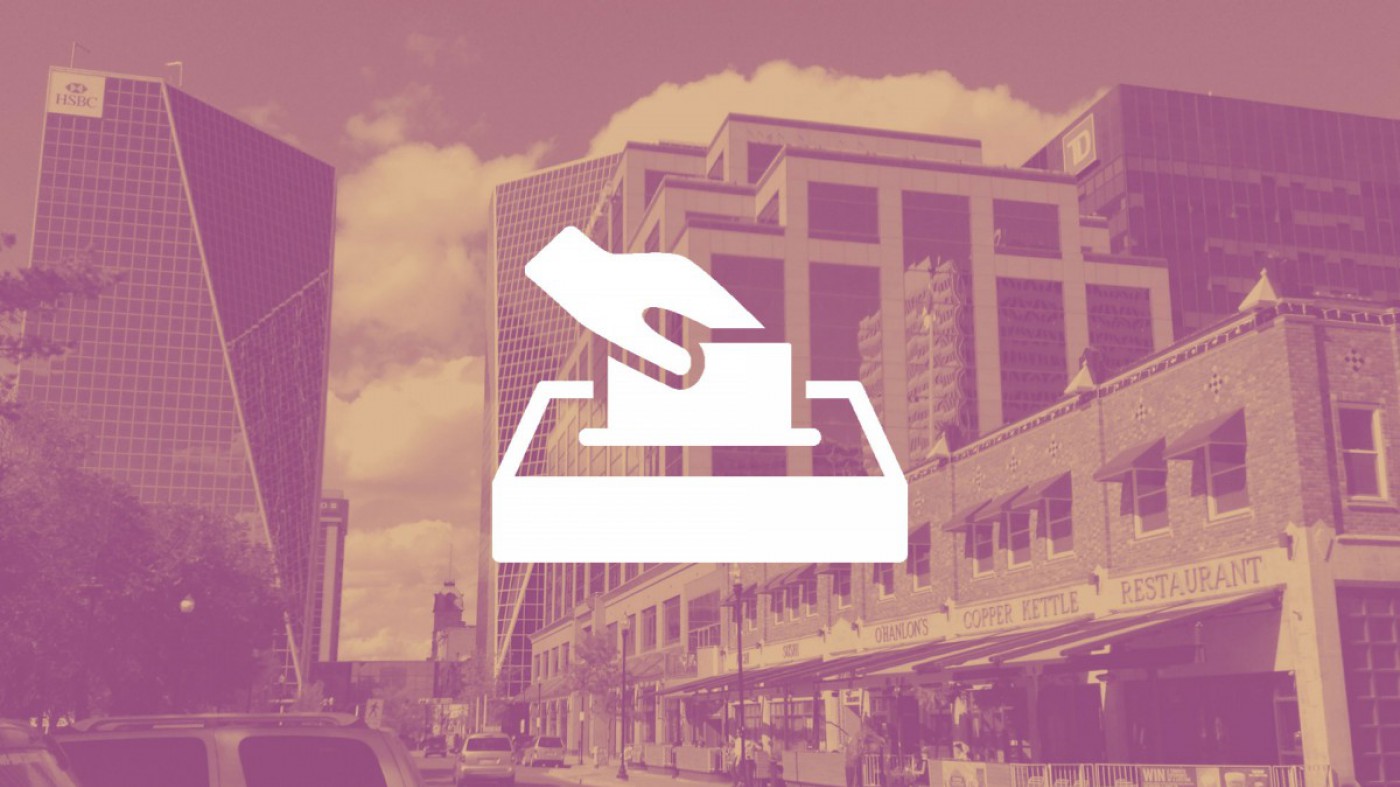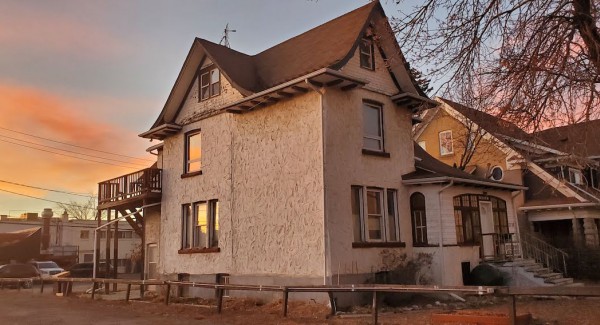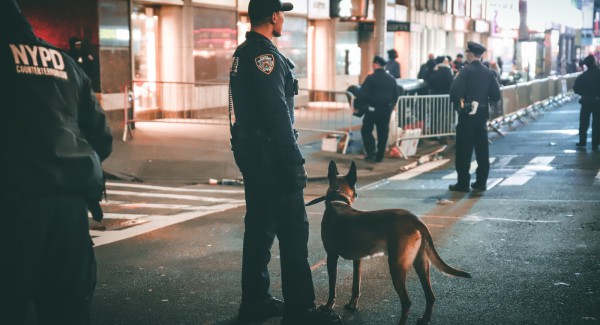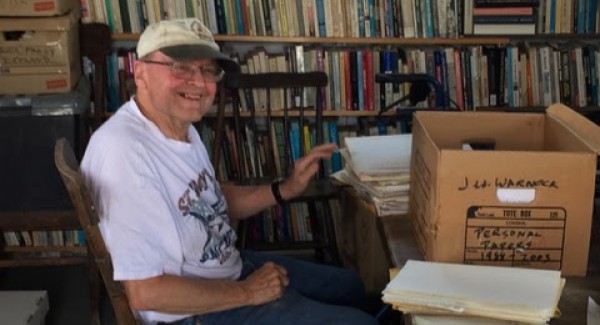Why you should (and shouldn’t) be invested in Regina’s municipal election

In preparation for Regina’s 2020 municipal election, the Sask Dispatch asked eight progressive community members, activists, and experts to pick one pressing issue facing the city, and write about how to address it. The Dispatch’s editor, Sara Birrell, introduces our 2020 Regina Municipal Election Package by writing about what’s at stake on November 9, and how leftists should approach elections.
In the wake of the October 26 provincial election, municipalities across Saskatchewan will head to the ballot box on November 9 to elect a mayor and council, as well as school board trustees. Although they don’t typically garner as much attention as provincial and federal elections, the stakes in municipal elections are high.
City council is where decisions about how to fund and empower the police are made. More than 60 per cent of the infrastructure that exists in Canada exists in municipalities, and with that infrastructure comes nearly half of all greenhouse gas emissions. That means that city council is where many of the decisions that affect your day-to-day life are made – including whose lives will be made more difficult through the enforcement of provincial and federal laws and how quickly we can reach climate targets and become sustainable.
“Local government is the level of government that gives us the ability to make good choices,” says Simon Enoch. "But if those good choices aren’t put in front of us as citizens, we can’t make them.”
“Local government is the level of government that gives us the ability to make good choices,” says Simon Enoch, Director of the Saskatchewan branch of the Canadian Centre for Policy Alternatives. That means individual choices like taking the bus, composting, or calling a crisis worker instead of the police. “But if those good choices aren’t put in front of us as citizens, we can’t make them,” Enoch continues.
Empowering the city
In particular, municipalities are ground zero when it comes to climate action. “National governments and state governments and provincial governments have shown a real inability to lead on [climate action],” Enoch says. “We have these international conferences and the Paris Agreement and whatnot, and there’s lots of fanfare, but we don’t seem to be anywhere near meeting those goals. So I think it’s going to be incumbent on cities to lead on a lot of this.” Whether they do so or not is one of the issues that’s on the table when residents go to vote.
In Regina, the environmental initiatives that have been brought forward have been hobbled by the city’s mayor, Michael Fougere, who is running for re-election. In October 2018, council passed a motion to make the city 100 per cent renewable by 2050, but in the two years since, the motion has been watered down and what was once intended for the entire city has been reduced to a motion to make only city infrastructure 100 per cent renewable. The city has also dragged its feet on converting its fleet of buses to electric vehicles. In contrast, Saskatoon has put forward a plan to reduce emissions by 80 per cent by 2050. The city has also introduced an electric bus which they plan to test for one year. It’s part of that city’s plan to have their entire transit fleet 100 per cent renewable by 2030. Saskatoon also has a municipal composting program, which is unique among Saskatchewan’s largest municipalities.
“Municipalities in Canada are creatures of the provincial governments. They’re limited in their powers […] and often they’re subservient to the dictates of the province.”
Canadians tend to place more trust in the responsiveness of municipal governments than they do in provincial and federal governments. But while cities have a greater ability to respond to the immediate needs of their residents, they’re also greatly limited in their powers. “Municipalities in Canada are creatures of the provincial governments. They’re limited in their powers […] and often they’re subservient to the dictates of the province,” Enoch says. That’s because municipalities aren’t recognized by the constitution in the same way that provincial and federal governments are, which makes them dependent on the provincial government, particularly when it comes to finances. Cities aren’t allowed to run deficits, and they’re dependent on two primary sources of revenue: property taxes and fees.
For cities in Saskatchewan, this means that even when they do want to develop robust climate targets, their goals can be hobbled by the province. Some cities, like Saskatoon and Swift Current, have their own local power authorities and they have some freedom to build their own renewable infrastructure. “But that’s been one of the problems in Regina,” Enoch says. “Any initiative that the city wants to take to build its own renewable power generation has to be okayed by SaskPower, which has limited the city’s appetite for pursuing that kind of stuff.”
“If we want our cities to lead, they need expanded powers,” Enoch says. “They can't constantly be going cap in hand to provincial and federal governments hoping to get funding, which is often uncertain and unstable and can be taken away at any point. We can't do long-term planning, because we don't have the ability at the city level to have stable revenues and long-term revenues.”
Ultimately, this means that cities are less democratic than they should be, since residents can elect leadership in the hopes that they will enact certain policies, but without the support of the province and the federal government, mayors and councils don’t necessarily have the power to carry out the people’s vision for their municipality. Still, municipal leaders shouldn’t be using this as an excuse, since the role of the municipal government is almost as much about advocacy to higher levels of government as it is about governance itself. “If you have aggressive, vocal lobbying by [municipal] leaders, you might be able to see changes at the provincial and federal level in that regard,” says Enoch.
“If we want our cities to lead, they need expanded powers,” Enoch says. “They can't constantly be going cap in hand to provincial and federal governments hoping to get funding."
The limited powers that cities have over certain issues do mean that some municipal governments will excuse their own inaction on issues by blaming higher levels of government for not contributing. In Regina, Fougere has campaigned on ending homelessness, but when it comes to explaining why he won’t direct actual funding to the issue, he points to the fact that homelessness comes under the purview of the provincial and federal governments.
Despite the limitations of municipal governments, there’s still a tremendous amount of power and influence that can be garnered at the local level. It’s something that strategists on the right are well aware of, and have been for decades. “In the 1970s, when the New Right was coming into its own, they recognized early on that ‘If we want to win, where we need to put our resources are local level positions, school board trustees, county supervisors, things like that. We win there, we gain experience and we gain local power,’” says Enoch. “And lo and behold, a decade later, they elect Ronald Reagan.”
Right now, the Saskatchewan Party seems to be recognizing that power. Currently, two former Sask Party MLAs under the Brad Wall government – Rob Norris, former Minister for Advanced Education, Employment, and Labour, and Darryl Hickie, former Minister for Corrections, Public Safety, and Policing – are running for mayor in Saskatoon and Prince Albert, respectively. While neither of them responded to the Sask Dispatch’s request for an interview, running former MLAs in urban settings, where the Sask Party’s support is weakest, seems like an effective tactic for further entrenching conservative power in the province.
“In the 1970s, when the New Right was coming into its own, they recognized early on that ‘If we want to win, where we need to put our resources are local level positions, school board trustees, county supervisors, things like that. We win there, we gain experience and we gain local power.’”
The infrastructure of dissent
While leftists should be paying attention to who’s running at a municipal level and making informed decisions about who to vote for, deciding whether or not to devote energy and resources to running candidates is a more fraught topic. Enoch says that municipal level politics, like city councils and school boards, are “a really great place for social movements to start if they want to enter electoral politics, because you can win with minimal resources.” And having that kind of representation can be crucial, especially in provinces that are run by conservative parties and that have significant representation of business interests on council. Just as cities have the potential to influence higher levels of government, a few dedicated, progressive council members can demonstrate to the city what’s possible.
But David Camfield, a labour studies professor at the University of Manitoba who has been active in leftist organizing for decades, says that the fragmented Canadian left should be cautious about throwing the weight they do have into electoral politics, even at the local level. “I think the crucial thing is to build extra-parliamentary grassroots organizing. Whether it's around unions, whether it's tenants organizing, climate justice, anti-racism, whatever it is. Until we've got strong organizing there, I think it’s a mistake to put energy into running candidates,” he says. “If people devote a lot of their efforts to running, and they elect somebody but if there's no social forces that are organizing to have real power outside of the council chamber, then the person who gets elected can't really do very much.”
“I think the crucial thing is to build extra-parliamentary grassroots organizing. Whether it's around unions, whether it's tenants organizing, climate justice, anti-racism, whatever it is. Until we've got strong organizing there, I think it’s a mistake to put energy into running candidates.”
“The question is, fundamentally, how do you think change is going to be made? Is it going to be made primarily through the struggle from below, and then the role of elections is running campaigns in ways that actually help build that ongoing outside organizing, and when you elect people, they see their role as helping to strengthen the forces outside the council chamber,” he asks. “Or is it going to be the more common view on the left, which is that the key thing is to select people at any level and the change will be made by those people from above?”
It’s not a question of principles as much as it’s a question of tactics. “Every level of the state matters, and there are things that can be done by radicals who are elected at any level,” Camfield says. “And there’s a way in which municipal politics may be, in some ways, easier terrain.” But, he says, “I think it’s a wrong tactical decision to put energy into running candidates if we don’t already have some significant organizing strength.”
Camfield agrees with Enoch’s assessment of the success of the right’s strategy of building strength in smaller arenas, but he says that the left of today is facing a far different set of circumstances than the New Right of the 1970s. In the ’70s “the right is going with the flow in terms of where the power is. It’s a favourable environment for them.” In contrast, he says, “the terrain of social forces is becoming more and more difficult for the left over time. And you know, [the right was] ideologically appalling, but they were coherent. They had a project.” Whereas today’s left is much more fragmented. “The ideological confidence and cohesion of the forces and the terrain in which they’re fighting have been very different for the right and for the left.” It’s not enough for the left to run candidates to work within the existing power structures. There needs to be robust, grassroots organizing outside the halls of traditional power. And that organizing just isn’t there yet, at least not on the prairies.
“The question is, fundamentally, how do you think change is going to be made?"
Camfield says that what Alan Sears called “the infrastructure of dissent” has weakened over the decades, “which really hurts the left. Whereas the political infrastructure of the right has the things that allow them to train people to cohere their forces, and those haven’t weakened in the same way.” When talking about municipal politics – the mayor and council and school boards that act in service of the neoliberal capitalist state – it’s critical to remember that what’s being discussed is the infrastructure of the right. And so running leftist candidates and even getting leftist candidates elected is not and can never be the primary focus of the radical left. Instead, rebuilding the infrastructure of dissent, which can endure whether or not left candidates are elected to any level of government, should be a priority.
So many of the concerns that leftists have, from police brutality to accessibility to climate change are concerns that are deeply rooted in our local communities. But those concerns neither begin nor end at the ballot box. The organizing that needs to be done is bigger than one issue, or one candidate, or one campaign. Regardless of who wins on November 9, the bulk of the work that needs to be done will be done outside of city councils by grassroots organizers and activists.



